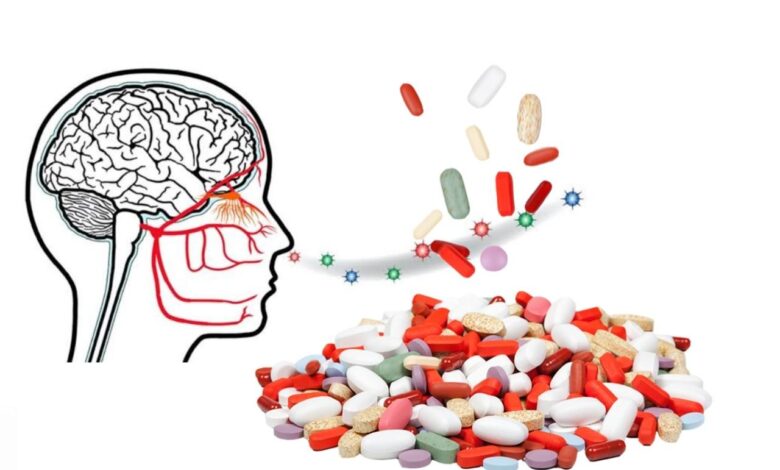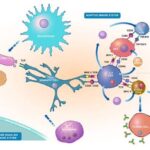List of Drugs That Cause Loss of Smell

Anosmia refers to the full or partial loss of smell. Anosmia can be a temporary or permanent condition. You can partially or completely lose your sense of smell when the mucus membranes in your nose are irritated or obstructed such as when you have a severe cold or a sinus infection, for example. But if the inability to smell isn’t related to a cold or sinus infection, or it doesn’t return after congestion clears, you should see a doctor. It could be a symptom of another issue.
The coronavirus pandemic has resulted in massive loss of smell on a global scale. A study published in JAMA Otolaryngology-Head & Neck Surgery estimates that between 700,000 and 1.6 million people in the US who had Covid-19 have lost or had a change in their sense of smell that has lasted for more than 6 months.
The sense of smell is important to overall health and nutrition since diminished sensations can lead to poor appetite and malnutrition, especially in the elderly. An altered sense of smell may pose other health-related problems. People with anosmia may accidentally consume soured or rancid foods because they are unable to detect odors that signal spoilage. Those with anosmia may also be unaware when they are breathing toxic, polluted, or smoke-filled air.
What are the causes of anosmia?
Several health conditions can cause loss of smell. Nasal congestion from a cold, allergy, sinus infection, or poor air quality is the most common cause of anosmia. In this article, we shall be looking at a number of drugs that can also induce loss of smell.
List of drugs that cause loss of smell
A. Angiotensin-Converting Enzyme Inhibitor examples include:
- Benazepril (Lotensin)
- Captopril (Capoten)
- Enalapril/Enalaprilat (Vasotec oral and injectable)
- Fosinopril (Monopril)
- Lisinopril (Zestril and Prinivil)
- Moexipril (Univasc)
- Perindopril (Aceon)
- Quinapril (Accupril)
- Ramipril (Altace)
B. Angiotensin Receptor Blocker (ARB)
- Azilsartan (Edarbi)
- Candesartan (Atacand)
- Eprosartan.
- Irbesartan (Avapro)
- Losartan (Cozaar)
- Olmesartan (Benicar)
- Telmisartan (Micardis)
- Valsartan (Diovan)
C. Dihydropyridine Calcium Channel Blocker
- Aliskiren/amlodipine (Amturnide, Tekamlo)
- Aliskiren/amlodipine/hydrochlorothiazide.
- Amlodipine (Katerzia, Norvasc)
- Amlodipine/atorvastatin (Caduet)
- Benazepril/amlodipine (Lotrel)
- Clevidipine (Cleviprex)
D. Diuretics
- Amiloride.
- Triamterene (dyrenium)
- Spironolactone (aldactone)
- Eplerenone (inspra)
E. Antiarrhythmics
- Amiodarone (Cordarone, Pacerone)
- Flecainide (Tambocor)
- Ibutilide (Corvert), which can only be given through IV.
- Lidocaine (Xylocaine), which can only be given through IV.
- Procainamide (Procan, Procanbid)
- Propafenone (Rythmol)
- Quinidine (many brand names)
- Tocainide (Tonocarid)
F. Lipid-lowering agents that cause loss of smell
Nasal preparations and medications that cause loss of smell
A. Intranasal Zinc
B. Nasal Sprays in general
Antimicrobial medications that cause loss of smell
A. Antibiotics
1. Penicillin
2. Tetracycline
3. Metronidazole (Flagyl)
4. Macrolides (e.g. Clarithromycin, Azithromycin, Erythromycin)
5. Fluoroquinolone (e.g. Ciprofloxacin, Levofloxacin)
6. Aminoglycosides
B. Antifungals that cause loss of smell
1. Terbinafine (Lamasil)
2. Griseofulvin
C. HIV Medications
1. Protease Inhibitors
Miscellaneous medications that cause loss of smell
A. Chemotherapy
1. Antiproliferative drugs (e.g. Cisplatin)
B. Antirheumatic Drugs (e.g. Penicillamine)
C. Antithyroid Medications
E. Anticonvulsants
F. Azelastine (Antihistamine)
G. Zopiclone (for Insomnia).





